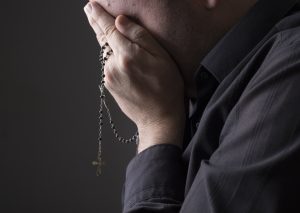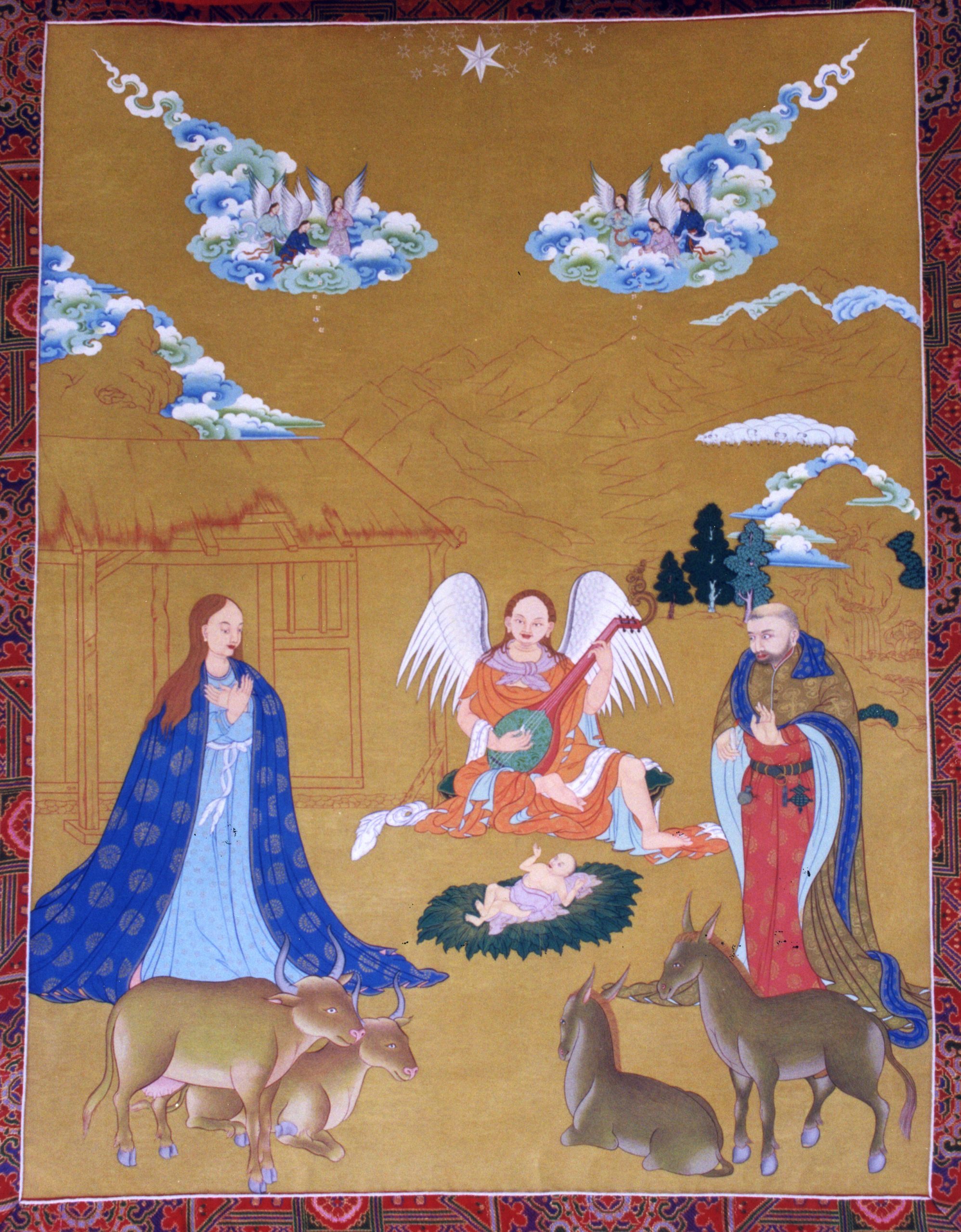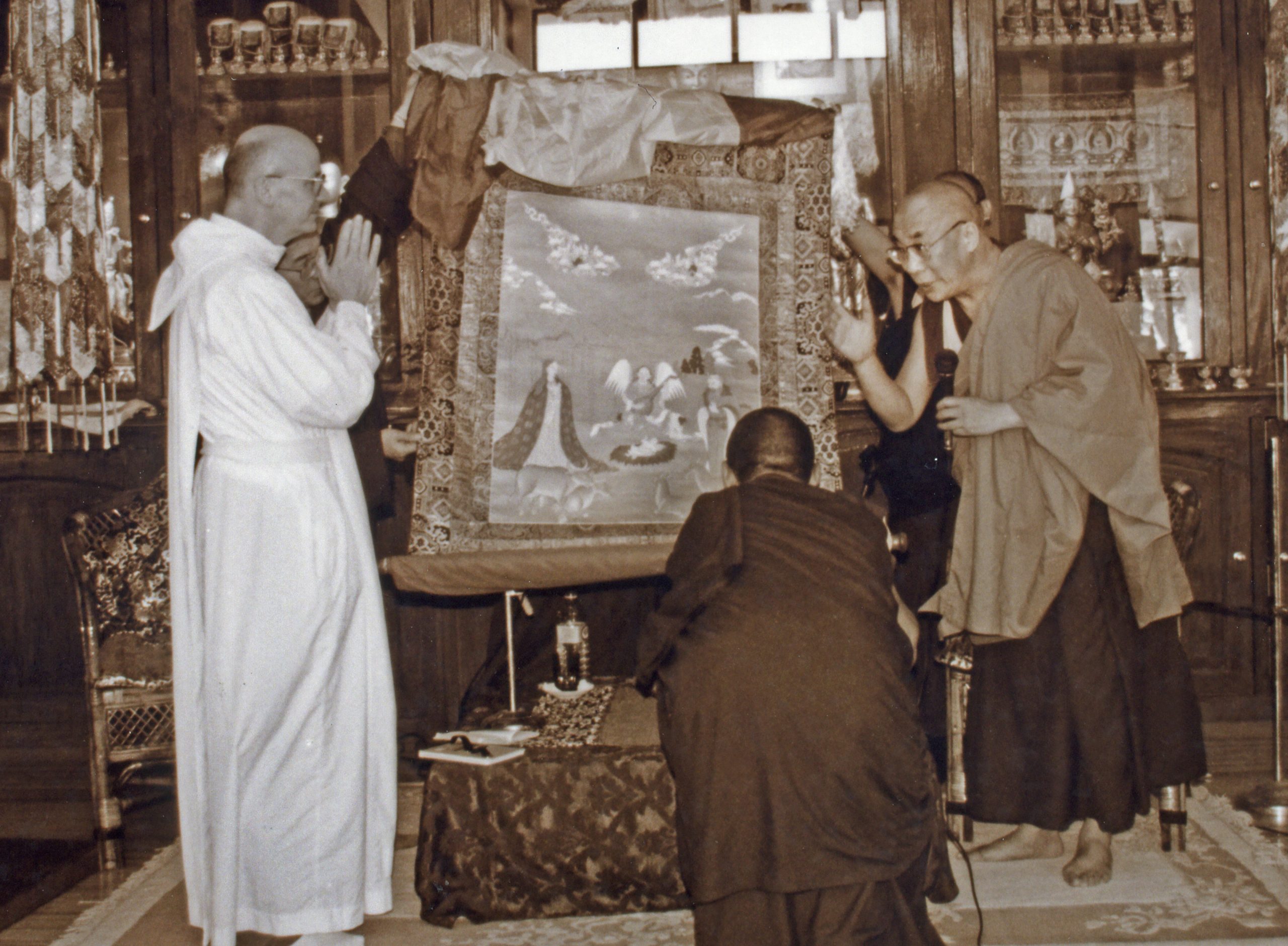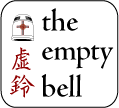Mission, History, Vision and Practice
Mission
The Empty Bell was founded in 1994 in Watertown, MA, and moved to Northampton, MA, in 2005. The Empty Bell is a sanctuary for the study and practice of Christian meditation and prayer, giving special attention to the Christian-Buddhist dialogue. Our purpose is to learn the history and practice of the Christian contemplative path as it is rooted in Hebrew and Christian scriptures, and to explore its common ground with other faiths. In the last two decades our dialogues and discoveries resonate with the works of Aldous Huxley and Evelyn Underhill in the Perennial Tradition, and we are always mindful of insights and practices culled from psychoanalysis and Jungian psychology. For us, meditation and prayer are not merely individual practices; rather, whether we practice alone or with others, we are always connected to other people, creatures, and God by the subtle body and power of the Holy Spirit. As the Zen teacher Thich Nhat Hanh often said, we “inter-are” with others. And yet, it is necessary to honor our grounded, everyday lives, important to respect the gift of our ego selves, and to be aware of our emotional and psychological boundaries with others. Folks in our Empty Bell community cultivate artistic expressions of spiritual insight, and seek ways to embody these insights in compassionate social, environmental and political action.
History
(This brief essay may be especially interesting to those who intend to start a contemplative community)
The Empty Bell has been an actual physical space for meditation and prayer for almost thirty years. But since the Spring of 2020–when the pandemic struck– our communities have been meeting on Zoom. While the physical space in Northampton, MA is now available by invitation only, public workshops are offered by Empty Bell founder Robert A. Jonas throughout Massachusetts, and on Zoom all over the country.
Currently, we host three contemplative communities which cost nothing, except participants’ serious desire to know their truth, to know God more intimately, and to to show up for most of our meetings. New members must first meet with Dr. Jonas in person or on Zoom, and must read and agree to honor the Empty Bell Principles of Sharing.
A Brief History of Empty Bell by Robert A. Jonas
Our Spiritual Vision
The spiritual vision of the Empty Bell is founded on the prophesies, practices, and stories in Hebrew and Christian scriptures; and informed by the teachings of contemplative and mystical teachers since the life and death of Jesus Christ. Jesus of Nazareth lived a completely mortal life–being born of a woman, and dying (a horrible death) at a very particular time in history. The name, Christ, is not Jesus’ last name, as some people think. Rather, our tradition affirms that Jesus was 100% mortal and simultaneously 100% divine. In his embodied time on earth, he spoke of the Creator (in Aramaic, Abba) as his Father, and told his friends, “If you knew me, you would know my Father also,” and when you awaken spiritually “you will know that I am in my Father, and you in me, and I in you. Whoever follows my teachings and loves me, will be loved by my Father, and I will love him and manifest myself to him.” These passages in John’s Gospel tell us that the mortal Jesus of Nazareth was transparent to the Creator. When we perceive the Creator’s Presence in a person, Christians name the Presence, Christ. The Christ archetype lives eternally in everyone and everything.
We trust in the ongoing inspiration and guidance of the invisible, intuitively sensed Holy Spirit who reveals Christ within us as our True Selves. The True Self is a descriptor used by the Trappist monk, Fr. Thomas Merton. It describes someone who is fully alive, generous, creative, and having made a passage to inner harmony. Our spiritual discipline at the Empty Bell is to notice when our personal presence becomes unbalanced and dissonant, thus interfering with the open-hearted, vigilant, and infinitely creative Christ-Presence. We trust that anyone can have an experience of this lovely, lively, harmonizing Presence. A person doesn’t have to be Christian to glimpse this awakening way of being in the Spirit. We therefore disagree with those Christians who say “No. The Holy Spirit dwells only in the people who identify as Christian.” Such people are ignorant of a truth that we profess, that when Jesus gave his life for the life of others, he meant All others, not just Christians. Not only because, at the time, the Christian religion didn’t exist, but also because Jesus’ immeasurable love and compassion had no boundaries.
That said, we wonder if–perhaps only those who have experienced the fullness of Christian liturgies, music, scripture, and prayer will know how to navigate life well in the company of the Spirit’s Presence.
God’s Love is limitless, without boundaries, but one boundary that we honor is our respect for the distinct integrity of each person. Living well requires that each person establish boundaries with others, in order to protect oneself from harm, and in order to be clear about what one wants and needs from others. Practically speaking, this means that we are each acutely aware of our reactivity to others which can take the form of anger, irritation, judgment, and becoming attached to any narrative about ourselves or others. Any persistent reactivity in ourselves and others can jeopardize our sense of safety and trust in the group. Being aware of the ultimacy and immediacy of God’s Love gives allowance for what is called “tough love” in the 12-step tradition. Standing in this Love, we are often called to cry “Stop!” when we witness unjust or harmful actions.
We are all aware of the value of therapy and counseling outside our community–especially when we notice irritability and discomfort that we realize is too intense for the Empty Bell community to handle. The leader or host must be especially attuned to interchanges that might introduce a lack of safety and creative, sensitive dialogue.
Contemplative Practices
No matter where we gather under the umbrella of the Empty Bell, the basic elements of an Empty Bell gathering include:
- Silence
- Hebrew & Christian Scripture; and occasional explorations of ancient Hindu, Buddhist, and Sufi texts.
- Chanting, shakuhachi, and instrumental expressions of our love
- Sharing and listening with a generous heart
- Vocal Prayer

Deep in Prayer, we meet ourselves, others, & God
Our Principles of Sharing describe, in behavioral detail, how we meditate and pray consistently, whether we sit alone on a cushion or participate in community gatherings. When we meditate in silence in a group, we say that we are alone together, and that actually, we are never alone because in each moment we are in the presence of a holy Presence that connects everything and everyone. We trust that all people, whether Christian or not, can experience this transcendent Presence in community gatherings.
Principles of Sharing
All gatherings at the Empty Bell include silence and individual sharing in the group. In this society, such opportunities are rare, precious, and fragile. Over time, we have found that this kind of “holy conversation” is most fruitful when certain principles of understanding and behavior are followed. Our core practice is to cultivate a sense of Christ’s holy Presence in each moment, no matter what we are thinking about, worried about, or feeling. Everything happens in this holy Presence. We interpret Christian “obedience” according to the Latin root of this word, audiō as the discipline of listening inwardly, and to others.
About Our Contemplative Vision

Thangka, Christ’s Birth, Dalai Lama gift to Fr. Laurence Freeman
Photo credit: Robert A. Jonas

Dalai Lama & Fr. Freeman,1998
photo by Heather Ray

“Misty Ocean Flute”
read more
